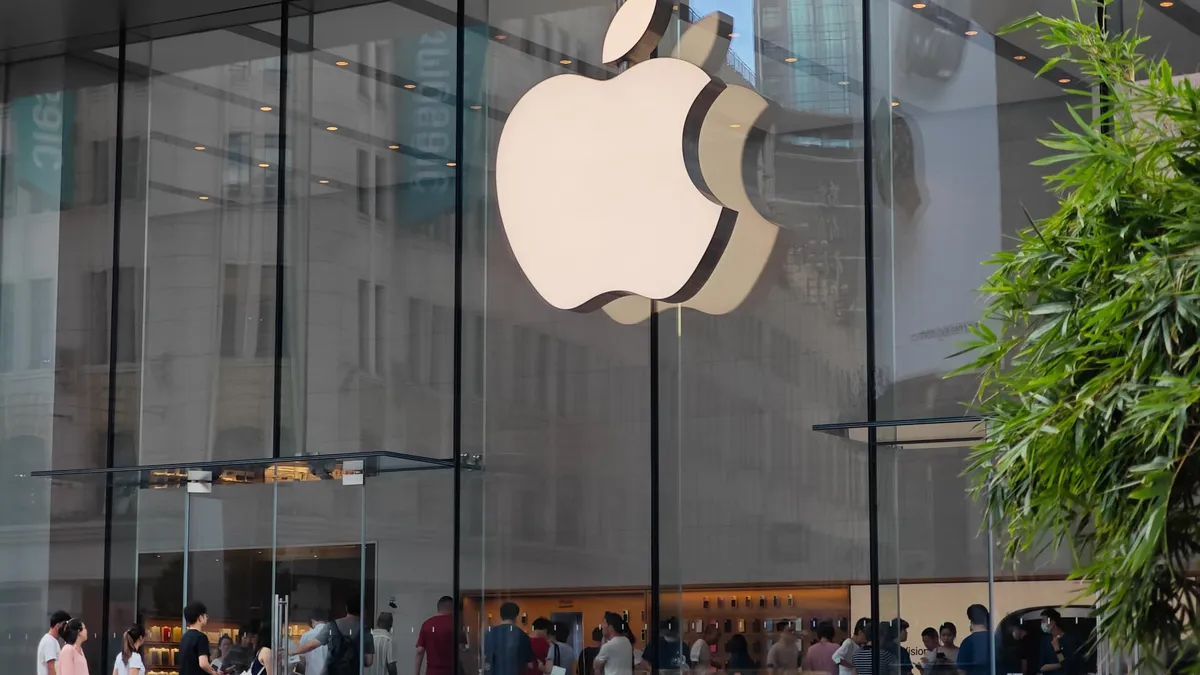
On Thursday, Apple shares experienced a significant pullback after former President Donald Trump escalated his rhetoric regarding tariffs against China. The implications of these tariffs have raised concerns about the potential impact on the tech giant, particularly as it heavily relies on China for its manufacturing processes. During afternoon trading, Apple’s stock dropped nearly 5%, reversing some of the impressive gains—over 15%—seen just a day prior.
The fluctuations in Apple’s stock can be traced back to comments made by Trump on Wednesday, where he announced a temporary reduction of new tariff rates on imports from most countries to 10% for a period of 90 days. However, the situation for China worsened, as Trump also confirmed an increase in tariffs on Chinese imports, bringing the overall U.S. tariff rate on China to a staggering 145%. This information was verified by a White House official in a statement to CNBC.
Given Apple's significant reliance on Chinese manufacturing, analysts are speculating that the company may need to implement price hikes to counteract the effects of these tariffs. According to Cherry Ma, an analyst at Macquarie Equity Research, such price increases seem inevitable. In a note released on Thursday, she stated, "We think a global-scale price hike in the upcoming iPhone 17 series is more likely than a U.S.-only price hike." This prediction is supported by anticipated major feature upgrades, including new cameras, a slimmer form factor, and a redesigned Pro casing.
If the reciprocal tariffs remain in effect for an extended period, Ma projects that the new iPhone price hike could range between 13% and 21% globally. Other products are also expected to see significant increases, with the Mac potentially facing the most considerable price hikes of 32% to 43%. The iPad is anticipated to increase by 21% to 28%, while the AirPods and Apple Watch may see price hikes of 13% to 20%.
Ma expressed doubts about Apple relocating its supply chain to the U.S. in the near future, asserting that Asia will continue to be the primary hub for production. She explained that the supply chain and logistics in other countries within the Association of Southeast Asian Nations (ASEAN) are still not sufficiently developed, and local talent is not prepared for a large-scale transition, despite lower import tariff rates compared to Vietnam and China.
In contrast to Ma's predictions, Morgan Stanley analyst Erik Woodring suggests that Apple may not need to raise prices after all. He emphasized that the company’s rapid production ramp-up in India and a strategic shift in the iPhone product mix could mitigate the impact of tariffs. Woodring explained that if Apple can shift consumer demand towards higher-margin iPhone models while ramping up production in India, it could lessen the financial pressure from tariffs.
Following Thursday's downturn, Apple has seen its stock decline nearly 7% over the past week and more than 24% year-to-date. As the situation unfolds, investors and analysts will be closely monitoring the company’s next moves in response to these ongoing tariff challenges.